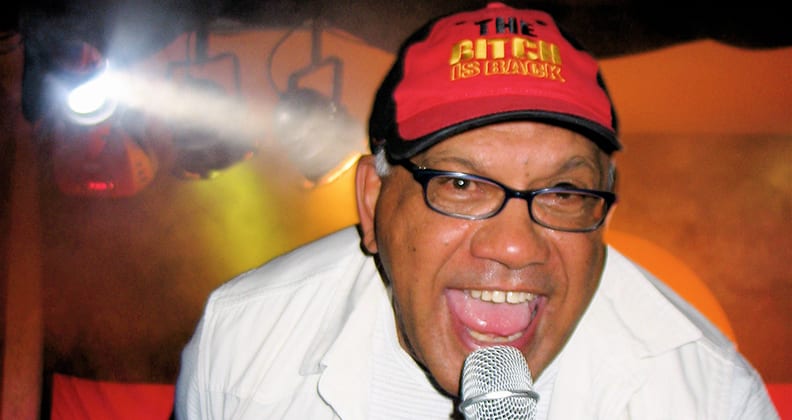The power of Aboriginal performance is taking centre stage in Professor Anna Haebich’s enlightening new book, Dancing in Shadows: Histories of Nyungar Performance.
Haebich weaves a chronological tale, beginning with a description of a corroboree in 1833 in an attempted peace meeting between Whadjuk Nyungar, Menang Nyungar and colonist representatives, and ending with an interview with contemporary Nyungar singer-songwriter Gina Williams.
There are numerous gems in between. In one instance, Haebich details what she believes to be the first touristic enterprise in southern Australia in Albany in the mid-to-late 1800s, where ship passengers would have the opportunity to attend shows led by local Menang Nyungar people that featured corroborees and kylie (boomerang) throwing.
One account describes a huge extravaganza that took place at night, where kylies were lit at one end and thrown to create a spectacular ‘spiral of fire’.
“It was this big display. The performances were regular and the performers asked to get paid. Of course, when the shipping came to Fremantle instead, that all stopped,” Haebich says.
Central to the book is Haebich’s awareness that the Nyungar people adapted their rich performance culture to survive colonisation and use it as a vehicle to bring forth resilience and healing.
An example is senior Nyungar custodian and 2017 John Curtin Medal Recipient Jim Morrison’s Noongaroke Nights, a ‘creatively Indigenised local version’ of karaoke popular in the 1990s and early 2000s, that echoed the corroborees of old in an attempt to bring Nyungar people together during times of grief. Noongaroke also raised funds to help with funeral expenses.
“Colonisation is all about people losing their land, their culture and dying, and being imposed on by another people’s culture, systems and government,” Haebich explains.
“I know Nyungar people are resilient because I’ve worked with them for a long time and my husband, [Elder and former Director of the Centre for Aboriginal Studies] Darryl Kickett, is a Nyungar man, but I wanted to know where this resilience came from. I started researching how performance has given Nyungar people strength, healing and happiness.
“It was about sustaining themselves, keeping their traditions. When colonisation started to happen, it was hard to know when it was ever going to stop. And it hasn’t.”

With the book being released in, ‘a bit of a perfect storm’, as Haebich describes it, during the 10-year anniversary of the apology to First Australians, she hopes she will help further cross-cultural understanding between Indigenous and non–Indigenous Australians.
“Many Nyungar people who are performing today are remembering what they saw their grandparents doing when they were children. And the Stolen Generations who were taken from their families are learning from them. So, there’s this transcending continuity down the generations despite everything done to stop Nyungar culture and language,” she says.
“I’m hoping that my book will help take away prejudices that non–Indigenous Australians may have, to really understand the history, the culture and the spirit of Nyungar people. They’re very creative people and great fun to be with. They’re storytellers, singers and performers.
“The Nyungar nation is the largest Aboriginal nation in Australia. They’ve been here 50,000 years! Nyungar families today are descendants of those people, and that’s amazing.”
Dancing in Shadows: Histories of Nyungar Performance is available at UWA Publishing, Amazon, Book Depository, Booktopia and other book sellers.



